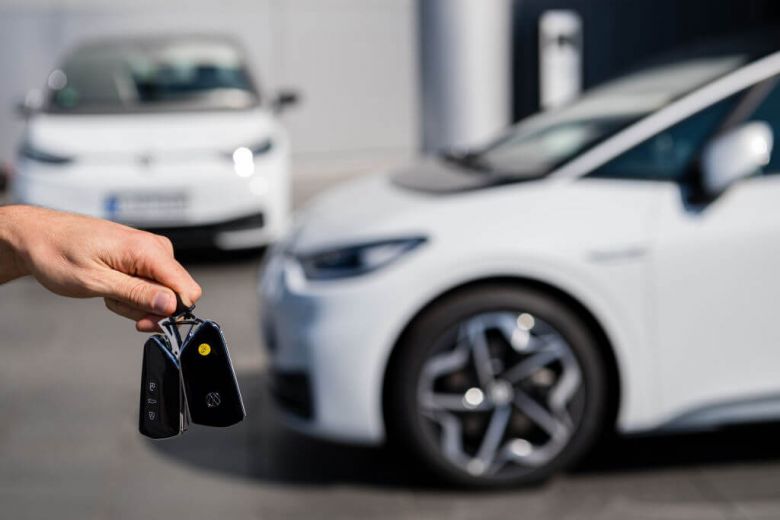For some it’s simply not economically feasible to own or run a car. However, many still need four-wheeled transport to get them around.
How do you resolve this issue? Hire a car for when you need one, of course.
Hire car companies generally offer a complete package, including rental, car hire excess insurance and breakdown cover ensuring maximum convenience.
But it’s important to know the ins and outs of hiring a car.
How to get the best deal when renting a vehicle
Do you know the difference between Economy and Compact class cars? If you’re going to be taking luggage with you, it’s important to understand how big the vehicle you’re getting is, so do your research of the company’s terminology. Opting for a smaller car can also save you a useful amount of cash.
Check you are legally allowed to drive the vehicle you’re intending to hire. If you only have a licence for an automatic, make sure you specify an automatic. It’ll save you losing your deposit when the mistake eventually surfaces.
Do you need extras such as air-con and sat-nav? Most modern cars have air conditioning, but optional extras can bump up the price of your hire costs. If you don’t need them – or can make do without – it’s a clever way to reduce expense.
Shop around for the best deal – you’ll get the same type of car, but prices can vary by a considerable amount. Other companies might be running promotions on certain classes of vehicle over certain periods. A little bit of time spent searching can help save money here.
A second driver is often included in the contract so take advantage of it and book someone else in. Even if you don’t use it, they are there for any eventuality. Just make sure they’re eligible to drive, too – hire companies often have a no under-25s policy.
Read the small print and the terms and conditions. It’ll tell you what your mileage allowance is, and any other stipulations set out as part of the agreement, such as how much fuel you have to return the car with, what the insurance excess is and who to call in the event of an accident or breakdown.
Make sure there’s a thorough damage check done with both you and a member of the hire car company present before you drive off – this way, any existing damage can’t be blamed on you.
Avoid pre-paying for fuel – it’ll be cheaper to fill up elsewhere than getting the rental company to brim the tank for you.
- If you paid for your car hire by credit or debit card, check your statement a short period after you gave the car back to ensure there were no unauthorised charges (this could be a late return fee so know when you need to have the car back by). If there are, contact your bank or the hire car company immediately.
These tips apply to renting a car in the UK as well as abroad if you’re going on holiday.
Need insurance for your road trip? Our temporary car insurance product is perfect if you're looking for flexible and comprehensive cover for between 1 hour and 30 days.
The important thing is to know what you’re getting for your money and make sure you go through the agreement thoroughly.
Temporary Car Insurance
Get short term insurance from 1 hour to 30 days. It’s quick! Get covered within 15 minutes. Buy online 24/7.


How much does is cost to hire a car?
Whether you are looking to hire for a day, week, month, or somewhere in between – there are many car rental firms that can offer you a bespoke package to help you find the right deal for you.
Although the final price can vary depending on the type of vehicle you are looking to rent, there are many affordable options available.
The cheapest day rent price for a small car or hatchback starts from about £45 a day, whereas larger cars or SUVs start at around £175 a day. If they are hired over a longer period of time, this rate can drop quite substantially.
However, many of the leading car rental companies in the UK advertise the option to rent a car for less than £20 a day. Although these can be very appealing – be wary of any added extras you may be asked to pay for.
What affects the price of hiring a car?
Once you have made the decision to hire a car, there are lots of companies that can help – and many factors that can impact the final price you pay.
Other than the quality, car type and make of the vehicle – the biggest factor is supply and demand. This can fluctuate due to a range of factors.
When you come to paying for your rental vehicle, you will also need to check if VAT has been calculated into the final bill and what the fuel policy is for the car you are going to drive.
Every rental firm has its own fuel policy. Some require you to fill the car up before you return it, while others add a surcharge for filling it up themselves. However, the second option is often very costly, and should be avoided if possible.
The rental location often has an impact on the final cost for the rental. If you are hiring in a major city (mostly London) or at an airport, then expect the final bill to be larger than expected.
Generally speaking, the earlier you book – the cheaper the final bill will be. If you know when you’ll be needing your rental vehicle in a few months – book now and save some money.
When you have reached the end of the booking process online, it is advisable to call the rental company and see if you can get a better deal by comparing it to rival renters. This could help lower the final rental rate.
How old do you need to be to hire a car?
If you are looking at renting a vehicle in the UK, you must be 23 years of age and held a licence for at least a year.
However, many rental companies will not offer a vehicle to anyone under the age of 25 – or will offer one at a much higher rate.
This is known as a Young Drivers Surcharge – and can vary in cost.
In the USA and Canada, you need to be over 21 and have held a licence for 6 months – and in many countries across Europe, you will need to be over 19. However, in every country, it is often the way that if you are under 25, then you will face a larger final bill.
What documents do you need to hire a car?
Throughout the booking process – and when you come to collect your vehicle from the rental company – you will need to have evidence of some important documents.
You will need your valid UK driving licence, another form of ID (passport, birth certificate, etc), proof of address, and the card you will use to pay for the car.
Ahead of your journey, it is advisable to also have a copy of your travel insurance, car hire excess insurance, and for UK motorists travelling abroad un a UK registered vehicle must carry a Vehicle on Hire Certificate.
It is advisable to have printed copies of these documents on your journey.
Also, when you sign the rental agreement – check the small print and don’t agree to anything you do not need. This can often drastically impact the final cost of renting a vehicle.
Take a contact number and/or business car of the representative that gave you the keys in case you need to call them about the vehicle or any issues you may face on your journey.
- Car dashboard symbols and meanings – warning lights guide
- Driving in Europe checklist – the complete guide
- How to check your lights and bulbs
What to do when returning a hire car?
Much like when you arrive to pick up your rental vehicle, you will need all the relevant documents and the car to pay for any extras.
Some companies will have specific drop off locations where you will need to return the vehicle, and it is something you should confirm with the company ahead of your journey – especially if you want to avoid any extra charges for arriving late. This location is sometimes different to the one where you collect it at the start of your journey.
When you hand over the keys, a representative from the company will check the car for any damages – and the fuel gauge if you have agreed to fill it up before returning the car.
If you are prepared, this process should not take long – just be prepared and have all the necessary information at hand.
Check for damage on a hire car
Before you even enter your vehicle, check for any damages, wear and tear and imperfections, and point them out to the representative. These should be noted on their diagram sheet – which both parties sign ahead of getting behind the wheel.
It is advisable to take images before the journey as evidence, should any disagreements happen when you return the vehicle.
When you pick up the keys, ask for a copy of the diagram sheet.
Ahead of the journey, check both the body and wheels of the car – and then the inside for any imperfections. Be thorough in your checks!
Check the fuel gauge
When you first get the car, take a photo of the time, date, mileage, and fuel gauge.
Have it featured on the signed agreement – and then repeat the process when you return the car.
If you have put the wrong fuel in the car – follow these steps.
There are 3 main types of fuel policy – but no matter which option is in place, make sure you keep evidence of what amount of fuel you have used, and the miles you have travelled.
You will likely have signed up to ‘pay for what you use’, ‘full to full’, or ‘full to empty’.
For the first one, you will be expected to return the vehicle with the same amount of fuel as you left the rental location. For the second option, you must fill up the car near the drop off location and then return the vehicle.
For the final one, you will have to pay the rental company upfront for any fuel you might use, and you can return the car as close to empty. You will often be charged a premium for this option.
What are ‘added extras’ when hiring a car?
Added or optional extras are often added onto the final price – but most of the time, these are unnecessary.
These can include physical options such as sat navs, baby seats, covers, bike racks and more.
Other options include various travel and car insurance options – however, these are often at premium rates, and it is advisable to shop around ahead of your journey and find the best rates.
Make sure you have travel insurance, car hire excess insurance, and for UK motorists travelling abroad un a UK registered vehicle, you must carry a Vehicle on Hire Certificate.
- Family road trips – how to survive long journeys with children
- Vehicle on Hire Certificate – all you need to know
- Summer breakdown tips – how to avoid a summer breakdown

Instant cover available
• 24/7 rescue at the roadside
• Help to get home if your vehicle can't be fixed
• 5 star Defaqto rated cover
















